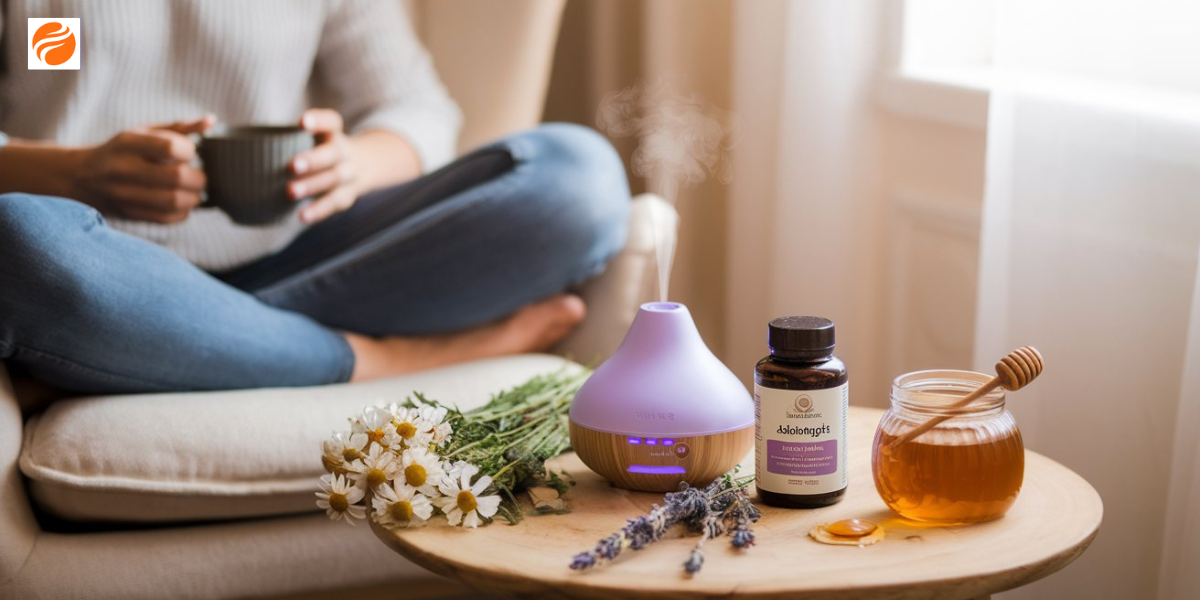
Natural Remedies for Anxiety is useful treatment as Anxiety is one of the most common mental health issues worldwide, affecting millions of people. While medications and therapy are commonly recommended, many individuals are turning to natural remedies as a complement or alternative to conventional treatments. These remedies can include herbal supplements, dietary adjustments, exercise, and mindfulness techniques, all of which can help manage anxiety symptoms naturally. By focusing on holistic approaches, you can achieve a sense of balance and calm without relying solely on pharmaceuticals.
Table of Contents
1. Chamomile for Calming Effects
Chamomile is a well-known herbal remedy for its calming properties. It has been used for centuries to alleviate stress, promote relaxation, and improve sleep quality. Chamomile tea, in particular, is often consumed in the evening to ease anxiety and promote restful sleep.
How it Helps:
Chamomile contains compounds like apigenin, which binds to receptors in the brain, producing a mild sedative effect that can reduce anxiety and induce relaxation.
How to Use:
- Drink chamomile tea before bed to promote sleep.
- Chamomile supplements can also be taken in capsule form for stronger effects.
2. Lavender for Anxiety and Stress Relief
Lavender is another popular herb used in aromatherapy for its anxiety-reducing properties. The essential oil of lavender can help promote relaxation, reduce stress levels, and even improve sleep. Studies have shown that lavender can significantly reduce symptoms of generalized anxiety disorder.
How it Helps:
Lavender oil contains linalool, a compound known for its soothing effects on the nervous system. It reduces anxiety by influencing the brain’s chemical receptors in a similar way to some anti-anxiety medications.
How to Use:
- Inhale lavender essential oil using a diffuser.
- Apply lavender oil to your wrists or temples for instant calming effects.
- Take lavender supplements for systemic anxiety relief.
3. Ashwagandha for Stress and Anxiety Management
Ashwagandha, an adaptogenic herb, has been used in Ayurvedic medicine for thousands of years to help the body manage stress. It helps reduce cortisol levels, which is the hormone associated with the body’s stress response.
How it Helps:
Ashwagandha modulates the body’s stress response by lowering cortisol, reducing anxiety symptoms, and improving overall well-being.
How to Use:
- Take ashwagandha supplements in powder or capsule form daily.
- Add ashwagandha powder to smoothies or teas for a calming effect.
4. Exercise for Natural Stress Reduction
Regular physical activity is one of the most effective natural remedies for reducing anxiety. Exercise increases the production of endorphins, the body’s natural feel-good chemicals, which help to improve mood and reduce stress levels.
How it Helps:
Exercise not only boosts endorphins but also helps lower the levels of stress hormones like adrenaline and cortisol. It provides a physical outlet for anxious energy and helps the body return to a more balanced state.
How to Use:
- Aim for 30 minutes of moderate exercise, such as walking, swimming, or cycling, most days of the week.
- Yoga and tai chi can combine physical movement with mindfulness, making them particularly effective for anxiety relief.
5. Mindfulness Meditation for Mental Clarity
Mindfulness meditation is a practice that helps you focus on the present moment, which can be particularly helpful for managing anxiety. By staying grounded and focused, you can reduce the racing thoughts and worries that often accompany anxiety.
How it Helps:
Mindfulness meditation trains your brain to be more aware of the present moment, which helps prevent anxiety-triggering thoughts about the future or past. Studies have shown that regular mindfulness practice can reduce anxiety levels and improve emotional resilience.
How to Use:
- Start with 10-15 minutes of mindfulness meditation each day.
- Use mindfulness apps like Headspace or Calm to guide you through meditative exercises.
- Practice deep breathing exercises whenever anxiety strikes.
6. Omega-3 Fatty Acids for Brain Health
Omega-3 fatty acids, found in fish like salmon and mackerel, play a vital role in brain health. Research suggests that a diet rich in omega-3s can help reduce anxiety symptoms by promoting healthy brain function and reducing inflammation.
How it Helps:
Omega-3s can reduce symptoms of anxiety and depression by promoting better communication between brain cells and regulating neurotransmitters like serotonin and dopamine, which influence mood and emotional balance.
How to Use:
- Incorporate fatty fish into your diet 2-3 times a week.
- Take omega-3 supplements if you don’t get enough from your diet.
7. Magnesium for Calming the Nervous System
Magnesium is a mineral that plays a crucial role in regulating the body’s stress response. Deficiency in magnesium has been linked to increased anxiety and stress, making it an important nutrient for those looking to manage anxiety naturally.
How it Helps:
Magnesium helps regulate the production of neurotransmitters that control anxiety. It can help reduce muscle tension, promote relaxation, and even improve sleep quality.
How to Use:
- Consume magnesium-rich foods such as spinach, almonds, and black beans.
- Consider taking a magnesium supplement, particularly magnesium glycinate, which is more easily absorbed by the body.
8. Passionflower for Anxiety Reduction
Passionflower is a lesser-known herbal remedy that has been used traditionally to treat anxiety and insomnia. It is often recommended for people with generalized anxiety disorder or those who experience anxiety-related sleep disturbances.
How it Helps:
Passionflower works by increasing the levels of gamma-aminobutyric acid (GABA) in the brain, a neurotransmitter that helps regulate mood and prevent anxiety.
How to Use:
- Drink passionflower tea before bed for relaxation.
- Take passionflower supplements as a natural treatment for anxiety.
9. Valerian Root for Sleep and Stress Relief
Valerian root is another herbal remedy that is often used to treat insomnia and anxiety. Like passionflower, it works by increasing GABA levels in the brain, which promotes relaxation and helps reduce anxious thoughts.
How it Helps:
Valerian root can improve sleep quality, which is crucial for those dealing with anxiety. Better sleep helps regulate stress hormones and lowers overall anxiety levels.
How to Use:
- Take valerian root supplements 30 minutes to an hour before bedtime.
- Drink valerian tea as part of a nighttime routine for calming anxiety and promoting restful sleep.
10. Social Support for Emotional Health
While herbal remedies and lifestyle changes are essential, maintaining strong social connections is also crucial for managing anxiety. Having a network of supportive friends and family can help reduce feelings of isolation and provide emotional stability.
How it Helps:
Social interactions and supportive relationships help release oxytocin, the body’s natural bonding hormone, which can counteract stress and promote feelings of security and calm.
How to Use:
- Stay connected with friends and loved ones, even if it’s through phone calls or video chats.
- Join support groups or anxiety-focused communities where you can share experiences and coping strategies.
also read : Top 10 Most Powerful Medicinal Plants and Their Health Benefits
Conclusion: Balancing Natural Remedies for Anxiety
Natural remedies for anxiety can offer a holistic approach to managing stress and promoting mental well-being. By incorporating herbal supplements, dietary changes, exercise, and mindfulness into your daily routine, you can reduce anxiety symptoms and improve your overall quality of life. However, it’s essential to consult a healthcare professional before starting any new treatment, particularly if you are already on medication for anxiety. A balanced approach that includes both natural remedies and professional guidance is often the most effective way to manage anxiety and stress.
for more info click here
FAQs
1. Are natural remedies for anxiety effective?
Natural remedies can be effective for managing mild to moderate anxiety. However, their effectiveness can vary depending on the individual and the severity of symptoms.
2. Can I use natural remedies alongside prescribed medications?
It’s essential to consult with your healthcare provider before combining natural remedies with prescribed medications, as some herbs and supplements may interact with certain drugs.
3. How long do natural remedies take to work?
The time it takes for natural remedies to show effects varies. Herbal supplements like lavender or ashwagandha may take a few weeks to build up in the body, while lifestyle changes like exercise or meditation may offer more immediate relief.
 Health live a Healthy life
Health live a Healthy life



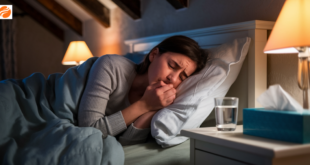
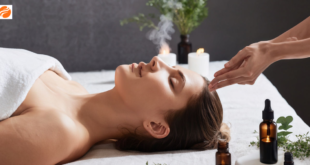
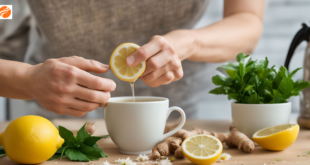
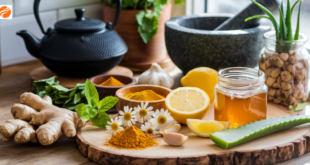
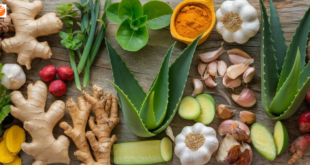
One comment
Pingback: Aromatherapy: Benefits, Top 5 Essential Oils, and How It Works for Health and Wellness